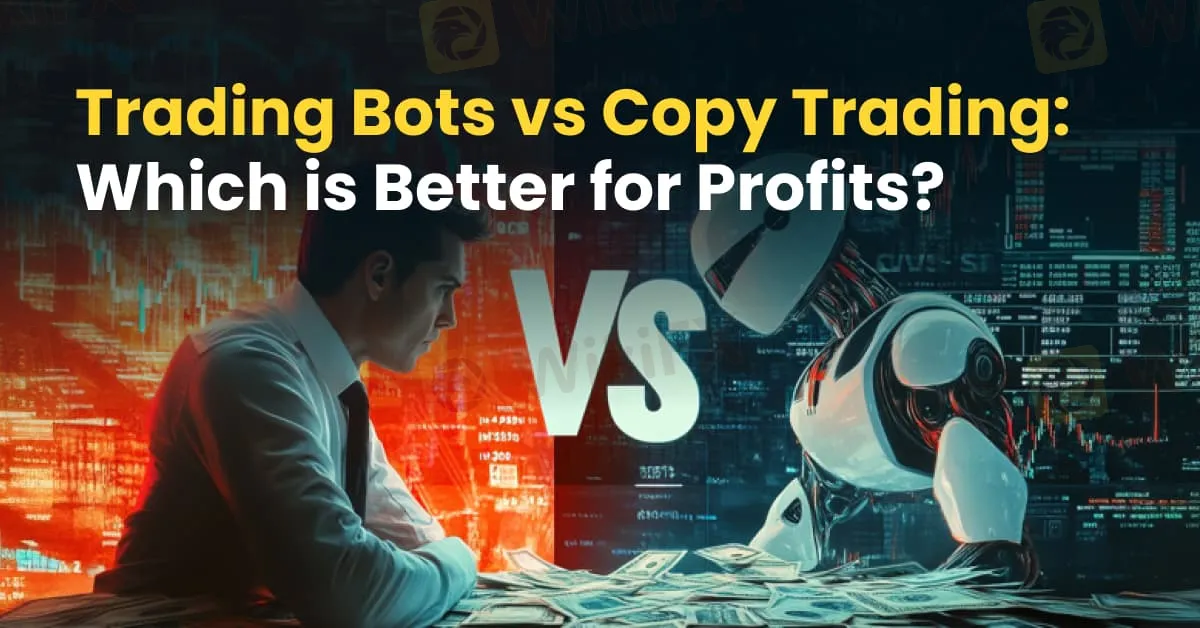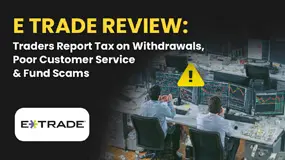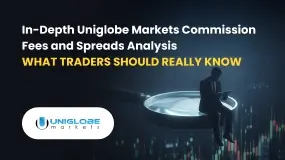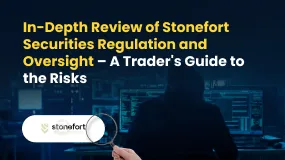简体中文
繁體中文
English
Pусский
日本語
ภาษาไทย
Tiếng Việt
Bahasa Indonesia
Español
हिन्दी
Filippiiniläinen
Français
Deutsch
Português
Türkçe
한국어
العربية
Trading Bots vs Copy Trading: Which is Better for Profits?
Abstract:The world of online trading has evolved rapidly, with automation becoming a dominant force. Among the most talked-about innovations are trading bots which are algorithmic programs designed to execute trades based on pre-set parameters. But how do these bots compare to copy trading, a system where investors replicate the trades of experienced traders? More importantly, can reliance on trading bots truly lead to financial freedom, or does it introduce more risks than rewards?

The world of online trading has evolved rapidly, with automation becoming a dominant force. Among the most talked-about innovations are trading bots which are algorithmic programs designed to execute trades based on pre-set parameters. But how do these bots compare to copy trading, a system where investors replicate the trades of experienced traders? More importantly, can reliance on trading bots truly lead to financial freedom, or does it introduce more risks than rewards?

Trading bots are designed to analyze market trends, execute trades, and manage risk, all without human intervention. These algorithms function 24/7, processing vast amounts of data at speeds no human trader can match. Some bots follow simple strategies, such as arbitrage or trend-following, while others use complex machine-learning models to predict market movements.
The appeal is clear: trading bots eliminate emotional decision-making, ensure disciplined execution, and provide access to opportunities that a human trader might miss. Yet, despite their advantages, they are not infallible. Market conditions change, and even the most advanced algorithms can suffer significant losses during periods of extreme volatility.

Copy trading, on the other hand, allows investors to mirror the trades of successful traders. Rather than relying on algorithms, users trust the expertise of seasoned professionals or influencers within the trading community. This strategy is often favoured by beginners who lack the time or knowledge to trade independently.
While copy trading does not require programming skills, it is not without risk. The strategy relies heavily on the performance of the chosen trader, meaning that if they make a poor decision, so does the investor following them. Unlike trading bots, which react to technical signals, human traders may rely on intuition or experience—factors that do not always guarantee success.

Many proponents of trading bots argue that automation is a gateway to financial freedom. The idea of generating passive income through algorithmic trading is undeniably appealing. However, true financial independence requires consistency and sustainability, both of which are difficult to guarantee with automated trading alone.
For one, markets are unpredictable. A bot that performs well in one market condition may fail in another. Additionally, many commercial trading bots promise high returns but lack transparency, leading to concerns about their reliability. Even professional-grade bots require regular adjustments and oversight to remain effective.
On the other hand, if used correctly, trading bots can act as a valuable supplementary tool. They can help traders execute strategies efficiently, remove emotional bias, and take advantage of opportunities that human traders might overlook. However, expecting them to single-handedly deliver financial freedom could be unrealistic.
Ultimately, both trading bots and copy trading present opportunities and risks. While automation can enhance trading efficiency, it is not a guaranteed route to wealth. Likewise, copy trading allows investors to leverage human expertise, but it still involves inherent risks.
So, is the future of trading fully automated, human-led, or a mix of both? The answer remains open for debate.

Disclaimer:
The views in this article only represent the author's personal views, and do not constitute investment advice on this platform. This platform does not guarantee the accuracy, completeness and timeliness of the information in the article, and will not be liable for any loss caused by the use of or reliance on the information in the article.
Read more

E TRADE Review: Traders Report Tax on Withdrawals, Poor Customer Service & Fund Scams
Has your E Trade forex trading account been charged a withholding tax fee? Did your account get blocked because of multiple deposits? Did you have to constantly call the officials to unblock your account? Failed to open a premium savings account despite submitting multiple documents? Is fund transfer too much of a hassle at E Trade? Did you find the E Trade customer support service not helpful? In this E Trade review article, we have shared certain complaints. Take a look!

mBank Exposed: Top Reasons Why Customers are Giving Thumbs Down to This Bank
Do you find mBank services too slow or unresponsive? Do you find your account getting blocked? Failing to access your account online due to several systemic glitches? Can’t perform the transactions on the mBank app? Do you also witness inappropriate stop-level trade execution by the financial services provider? You are not alone! Frustrated by these unfortunate circumstances, many of its clients have shared negative mBank reviews online. In this article, we have shared some of the reviews. Read on!

In-Depth Uniglobe Markets Commission Fees and Spreads Analysis – What Traders Should Really Know
For experienced traders, the cost of execution is a critical factor in broker selection. Low spreads, fair commissions, and transparent pricing can be the difference between a profitable and a losing strategy over the long term. This has led many to scrutinize the offerings of brokers like Uniglobe Markets, which presents a tiered account structure promising competitive conditions. However, a professional evaluation demands more than a surface-level look at marketing claims. It requires a deep, data-driven analysis of the real trading costs, set against the backdrop of the broker's operational integrity and safety. This comprehensive Uniglobe Markets commission fees and spreads analysis will deconstruct the broker's pricing model, examining its account types, typical spreads, commission policies, and potential ancillary costs. Using data primarily sourced from the global broker inquiry platform WikiFX, we will provide a clear-eyed view of the Uniglobe Markets spreads commissions prici

In-Depth Review of Stonefort Securities Regulation and Oversight – A Trader's Guide to the Risks
For experienced traders, the process of selecting a new broker transcends a simple comparison of spreads and leverage. It is a meticulous due diligence exercise where the integrity of the broker's regulatory framework is paramount. Stonefort Securities, a relatively new entrant in the crowded brokerage space, presents a complex and often contradictory profile. On one hand, it boasts a modern MT5 platform and a stream of positive user testimonials. On the other hand, it is shadowed by severe regulatory warnings that question the very foundation of its operations. This in-depth review focuses on the core issue for any long-term trader: Stonefort Securities regulation and oversight. We will dissect the broker's corporate structure, scrutinize its licensing claims, and analyze what the data implies for trader protection and fund security. For traders evaluating whether Stonefort Securities is a trustworthy partner, understanding these details is not just important—it is essential.
WikiFX Broker
Latest News
WikiFX's New Evaluation of ATM Capital LTD: Does its License Protect the Arab Investor?
How a Fake Moomoo Ad Led to the “New Dream Voyage 5” Scam
Is Axi Legit? A Data-Driven Analysis of Its Regulatory Standing and Trader Feedback
Trive Investigation: High Score, Hidden Risk - The Profit Paradox
In-Depth Uniglobe Markets Commission Fees and Spreads Analysis – What Traders Should Really Know
FXPesa Review: Are Traders Facing High Slippage, Fund Losses & Withdrawal Denials?
CMC Markets Australia Revenue Surges 34%, But High-Net-Worth Clients Face Tax Phishing Threat
Bessent believes there won't be a recession in 2026 but says some sectors are challenged
Young Singaporean Trader Grew USD 52 into a USD 107,700 Portfolio
Is GGCC Legit? A Data-Driven Analysis for Experienced Traders
Currency Calculator



